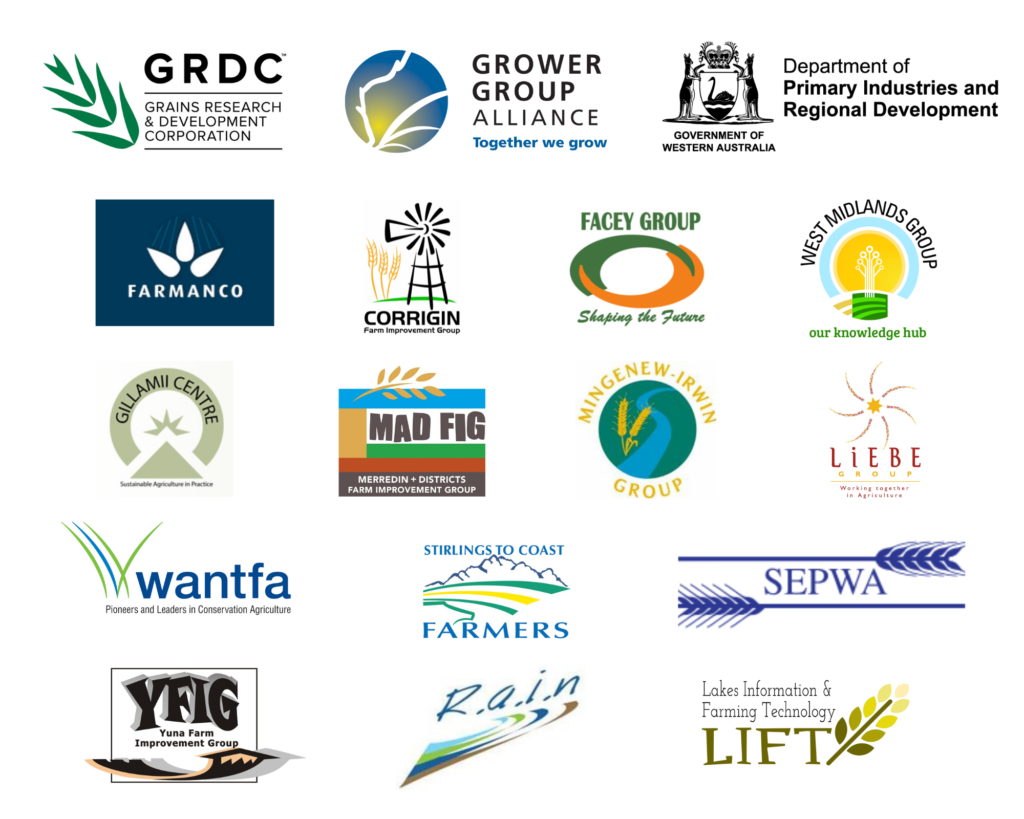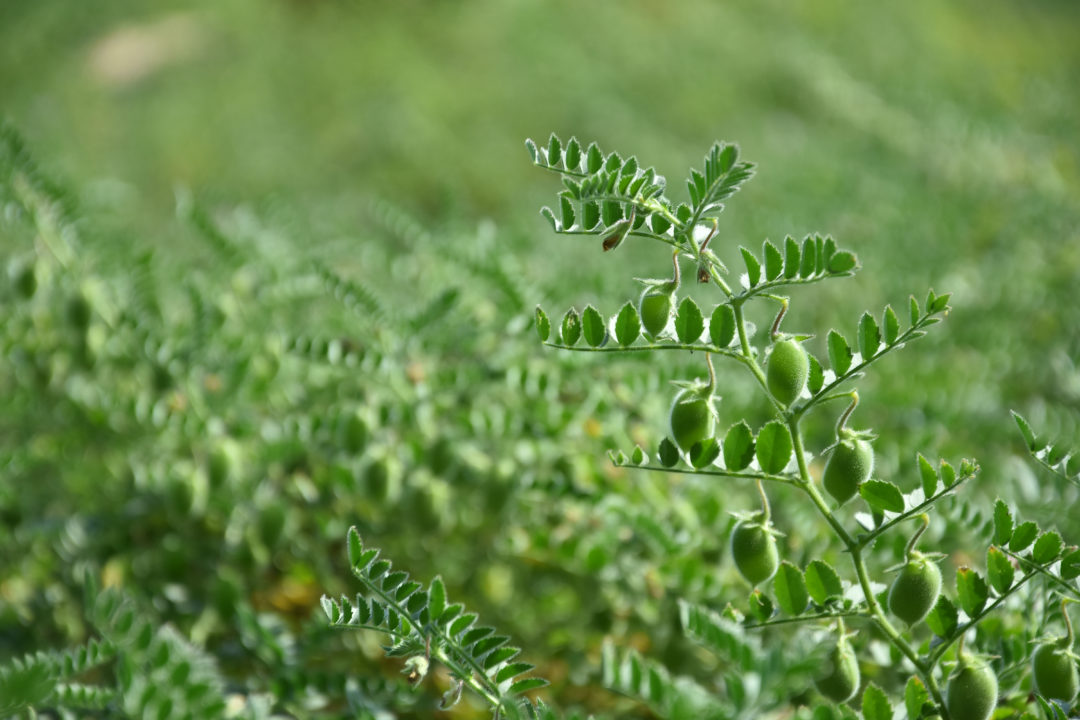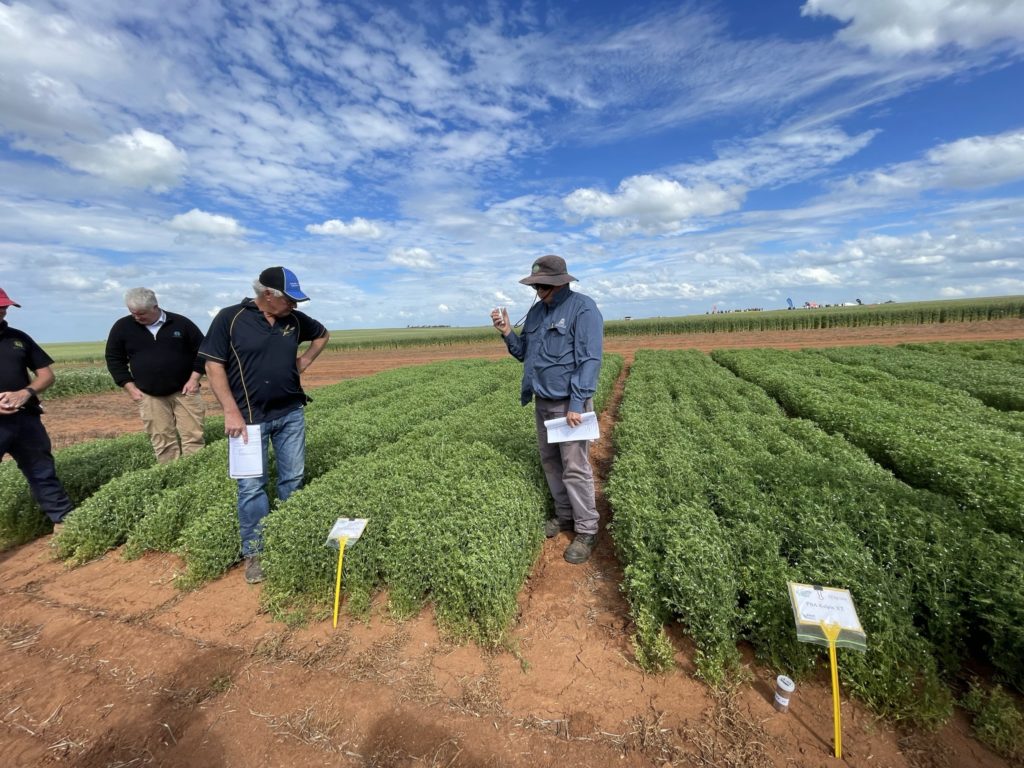This comprehensive project will combine extension, trials, technical and economic analysis to support growers to access the benefits of legumes in crop rotations moving forward.
Established as a project with investment by the GRDC, GGA will collaborate with government, agribusiness, researchers, grower groups and growers to address the low adoption of grain legumes in WA farming systems.
Origins of the project stem from GRDC analysis indicating farmers are aware of the benefits of legumes in crop rotations. However, concerns around pulse reliability, profitability and lack of confidence in their consistent production are causing barriers to integration. Consequently, Western Australian farmers have been slow to exploit the recent advances in grain legume genetics, acid-tolerant rhizobia, management strategies, and weed and disease protection products.
Combatting this situation requires an extensive technical and extension program to change grower sentiment, driving new capabilities into profitable cropping systems. The project will see collaboration between government, agribusiness, researchers and end-users to address the current poor rate of adoption of grain legumes in WA farming systems.
Aims
- demonstrate recent advances in the production of grain legumes, across a range of environments and soil types, through 25 user-defined farm-scale trials and, where appropriate small plot trials.
- apply trial results to refine best-fit grain legume recommendations
- produce a statistically rigorous economic analysis of grain legumes as a cash crop in the year they are grown and calculate the financial contribution of grain legumes to the longer-term cropping sequence
- develop and deploy key messages from credible entities to market the improved performance of grain legumes.
Project Map
Trial locations – 2022 legume trials for (red) and 2023 sites (yellow).
Centres of Excellence – Green stars show the trial host grower groups locations which are establishing their local knowledge and developing into 13 Centres of Excellence in legumes production around WA.
Legume Leaders – Numbers show local Legumes Leaders, experienced legume growers sharing insights about how and why legumes have been a long-term part of their farm system model.
Project Survey

Grain legumes currently contribute in a small and diminishing way to the profitability of Western Australian farming systems.
Analysis indicates that farmers are aware of the benefits of growing a legume in their rotation but have concerns about pulse reliability and profitability and need more confidence in their consistent production.
Via the below QR code, complete our project survey and let the Grower Group Alliance know about your opinions on grain legumes.
Project Updates
Photos below of project trial sites are flowing in from project partner grower groups and will be updated as visuals are available.
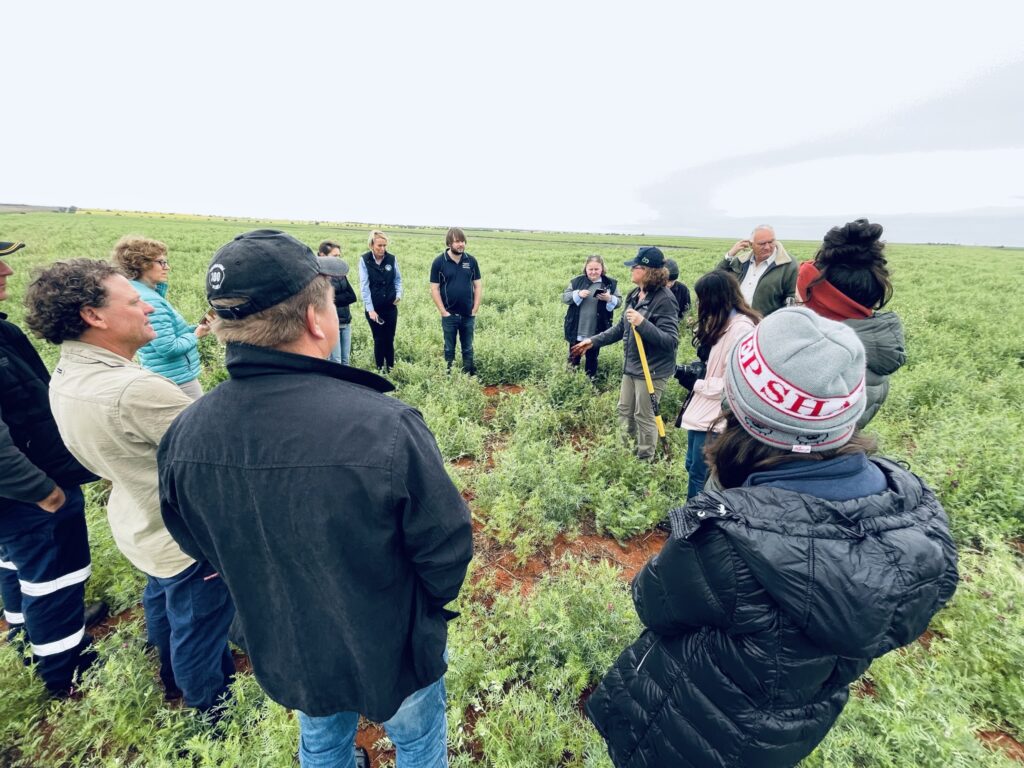
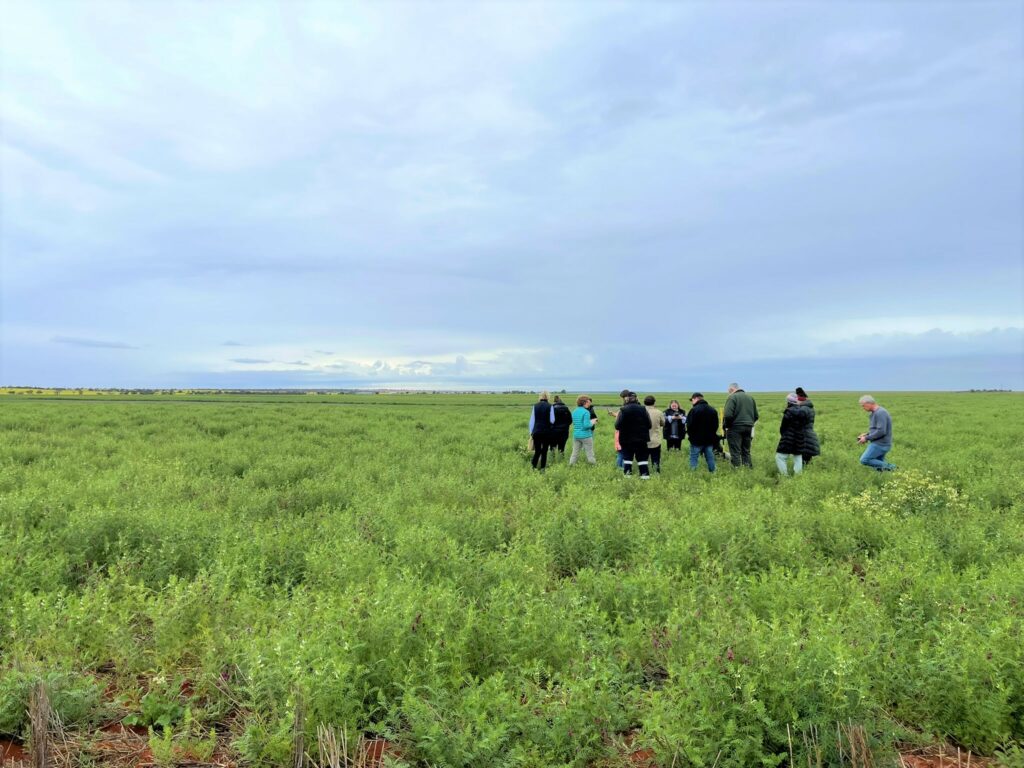
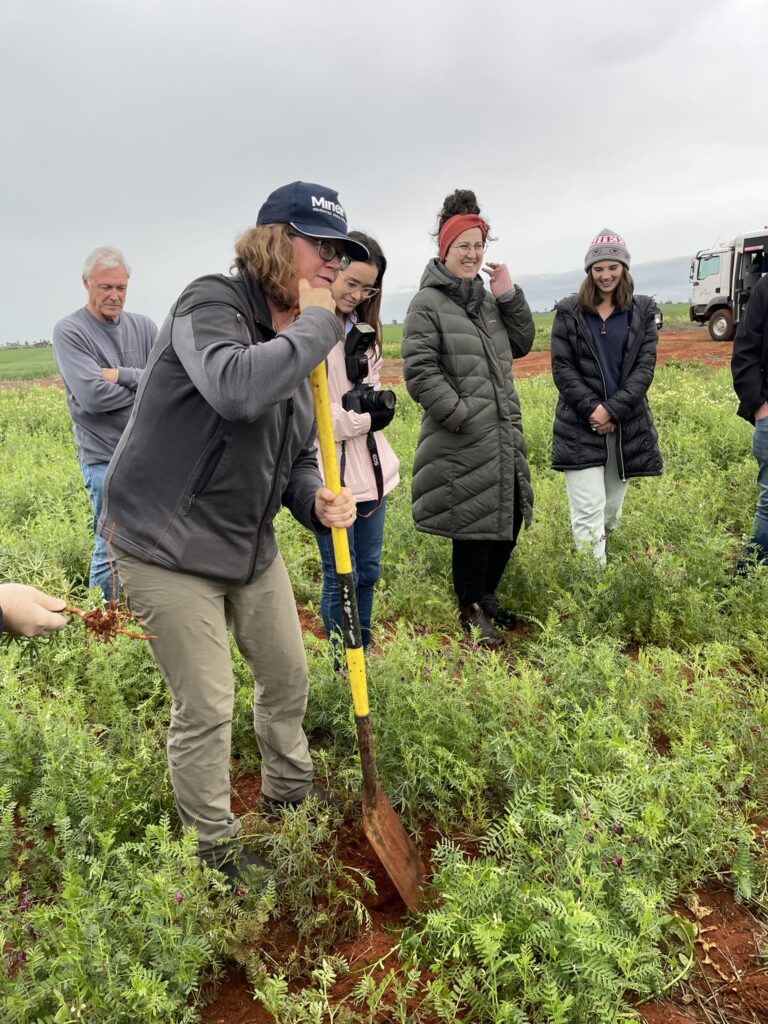
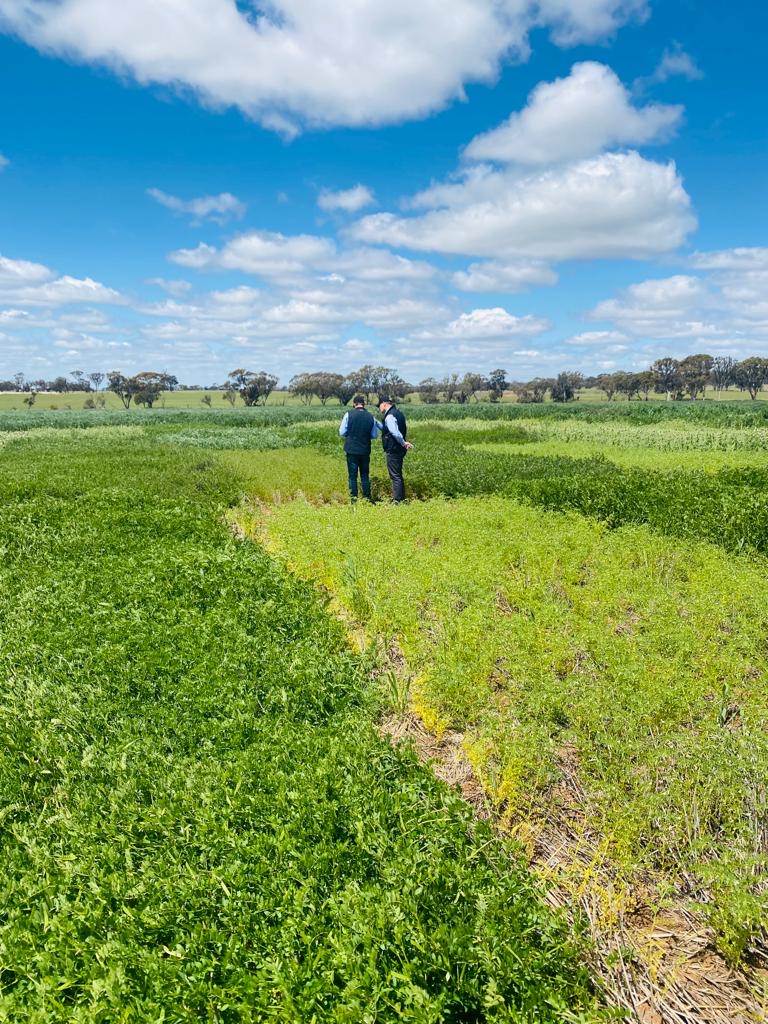
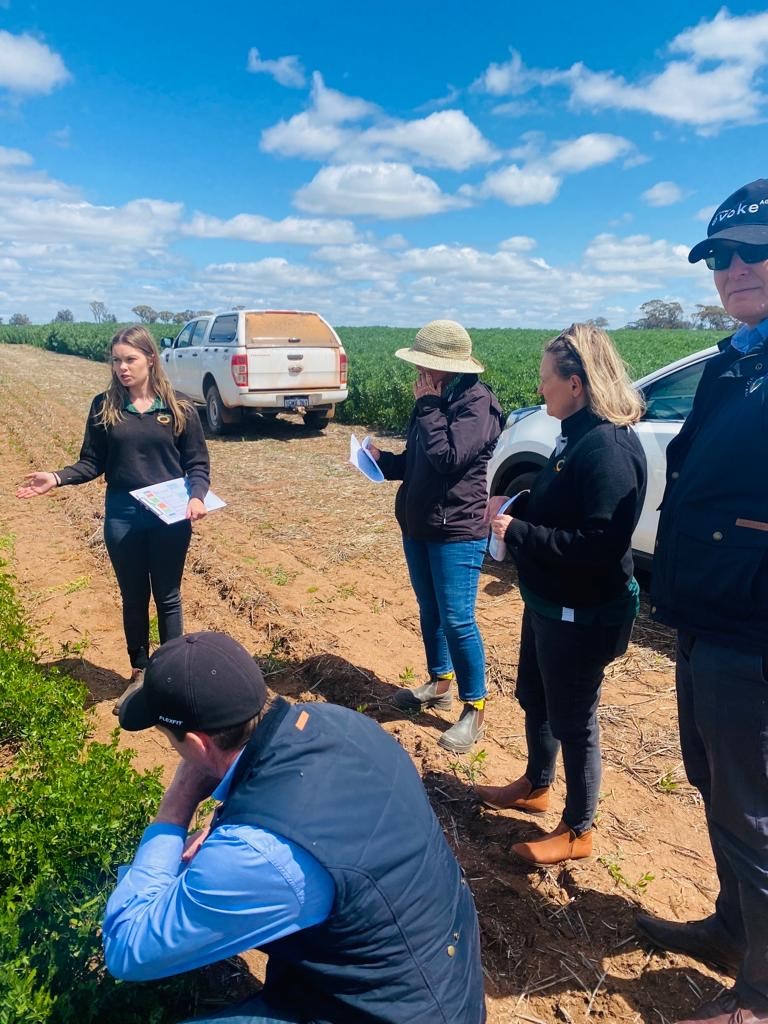
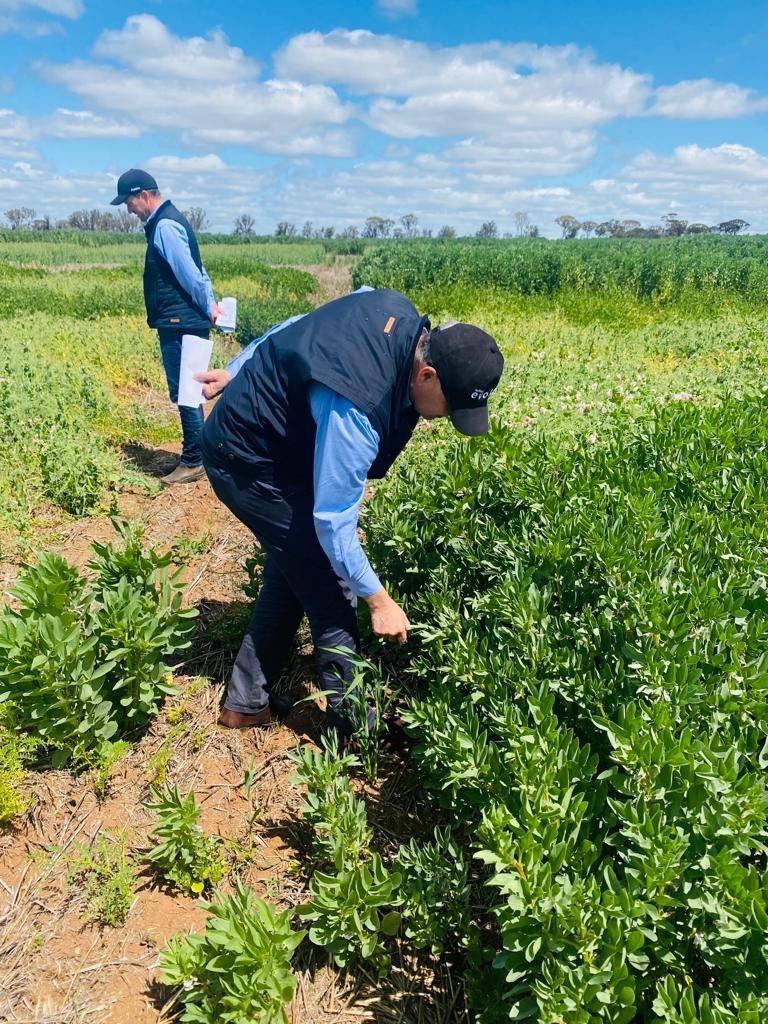
Grower Group Trials
News
Follow the grower group project partners on Twitter.
Get Involved
Add your details here to follow the project and be part of our legume knowledge community. You’ll hear about the trial field days, and trial results, and receive updates when Legumes Leaders are added showcasing how and why legumes have been a long-term part of their farm system model.
Resources

Closing the Economic Yield Gap of Grain Legumes in WA
This presentation gives an overview of the project closing the Economic Yield Gap of Grain Legumes in WA. Updated at the GRDC Grains Research Update held in Perth 26-27 February 2024.
Featuring:
- Jason Batten from Yuna Farm Improvement Group
- Ed Naisbitt from Lakes Information Farming Technology (LIFT)
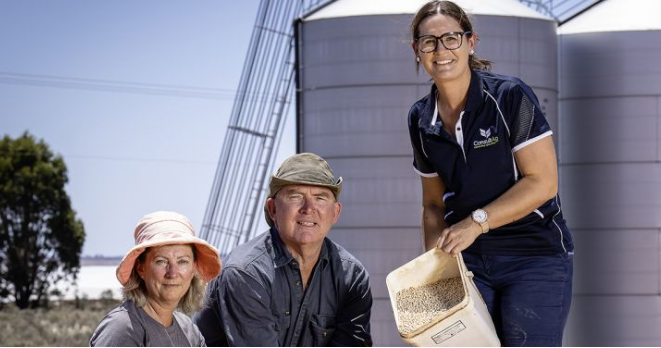
Ground Cover – Issue 169
‘Legume leader’ set to share 40 years of lupin experience
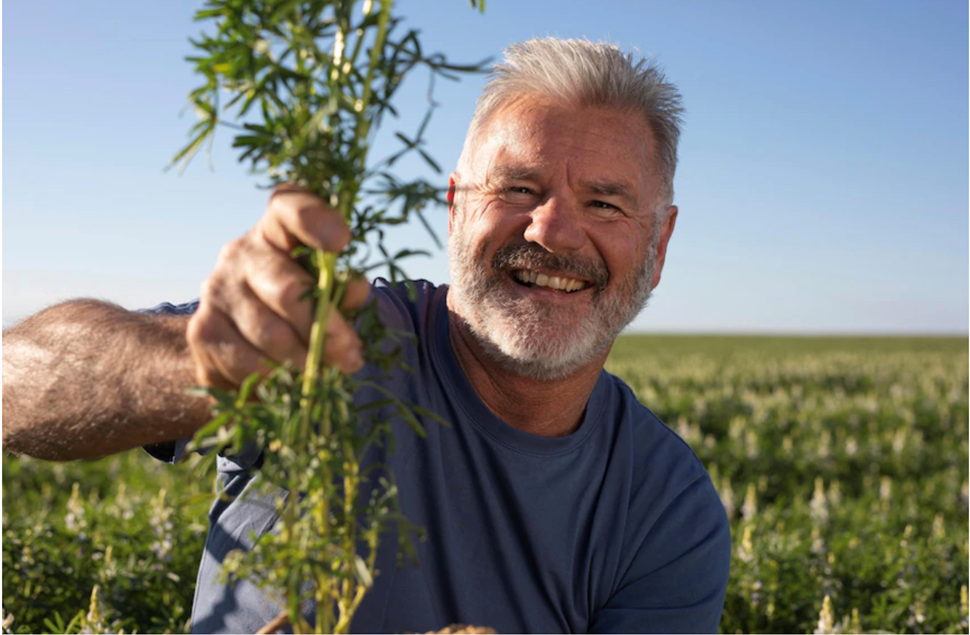
Legume Leaders
Insights from experienced long-term WA legume growers that advocate for legumes in a farming system.
*Under construction – more growers coming soon from project partner groups
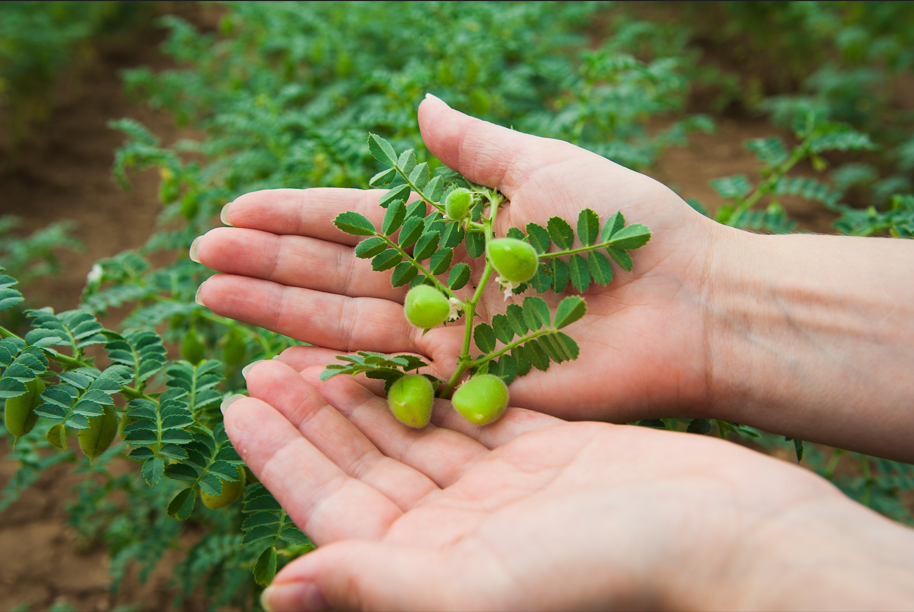
The Business Case for Legumes
-Reduced inputs to the farming systems
–Commercial trends in plant-based protein
-Business resilience through diversified crop options
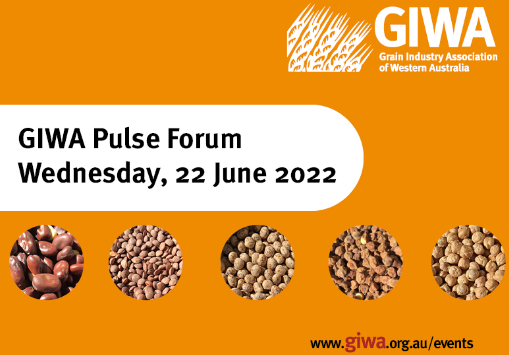
GIWA Pulse Forum 2022
A day filled with great presenters, thought-provoking content and all things pulses. All the presentations and videos from the day can now be viewed here.
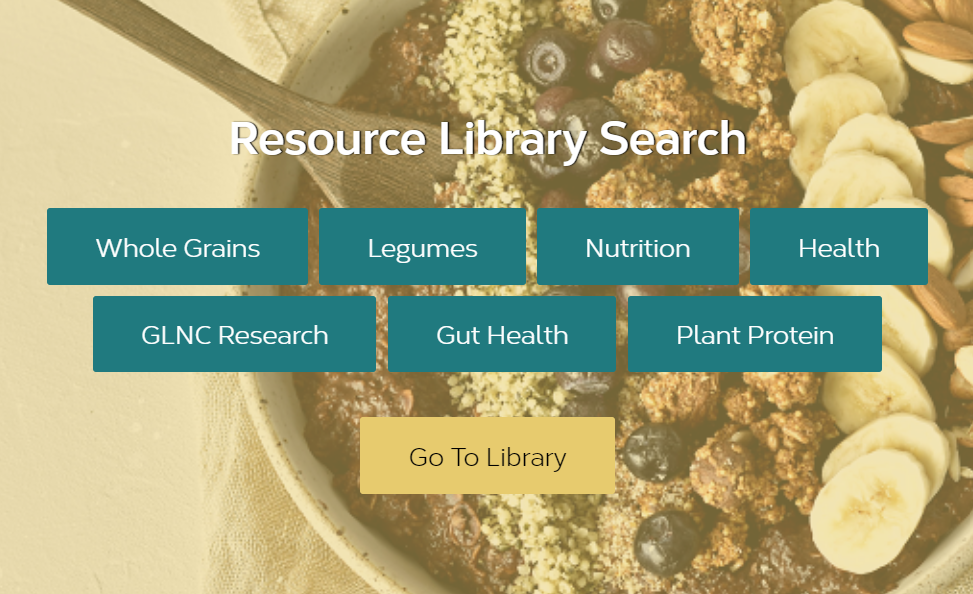
Grains and Legumes Nutrition Council – Resource Library
GLNC’s mission is to promote grains & legumes as part of a balanced diet through evidence-based information while supporting the industry to benefit all Australians.
Project Team



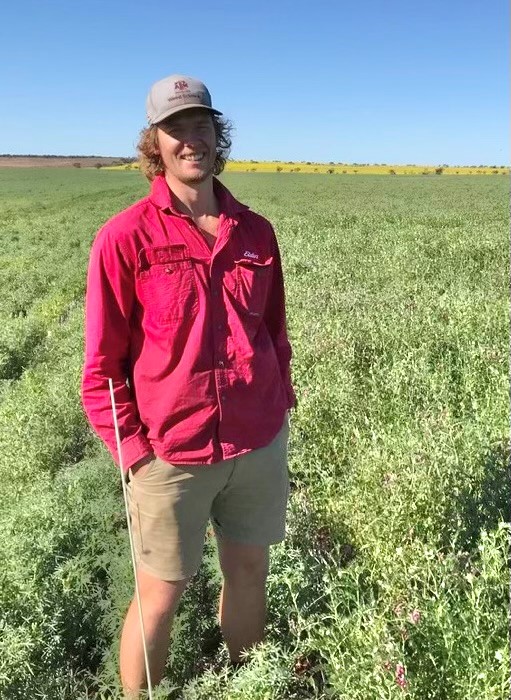
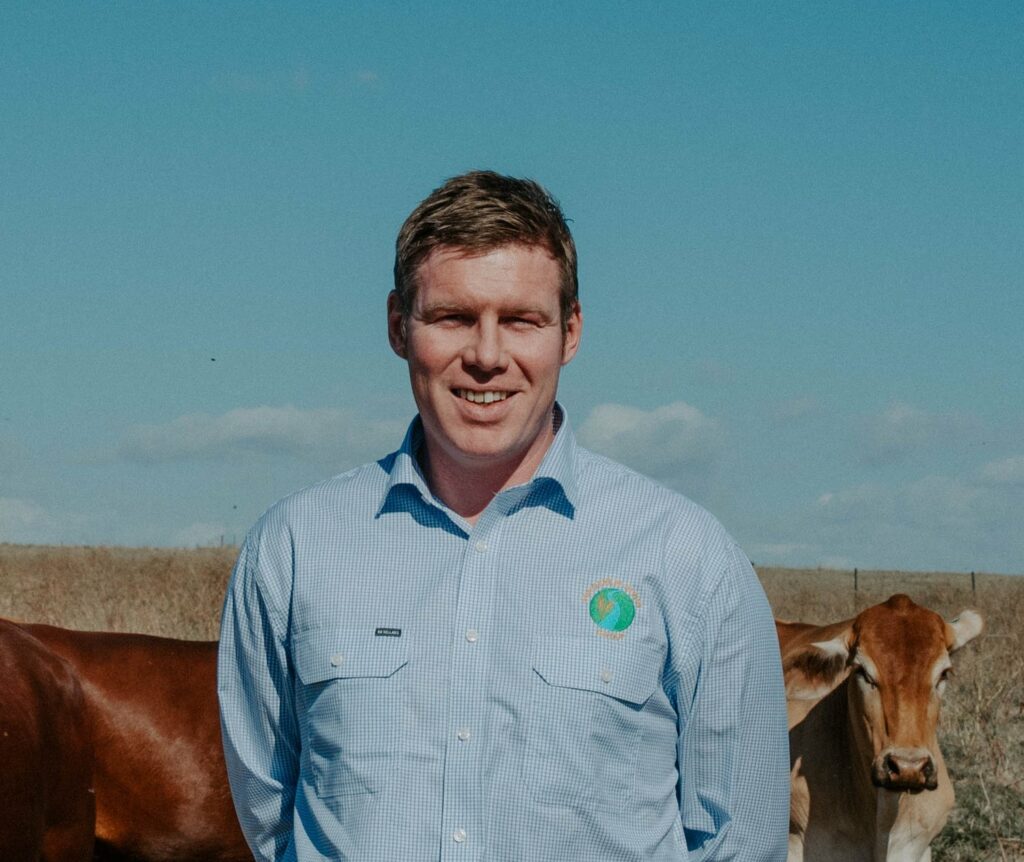
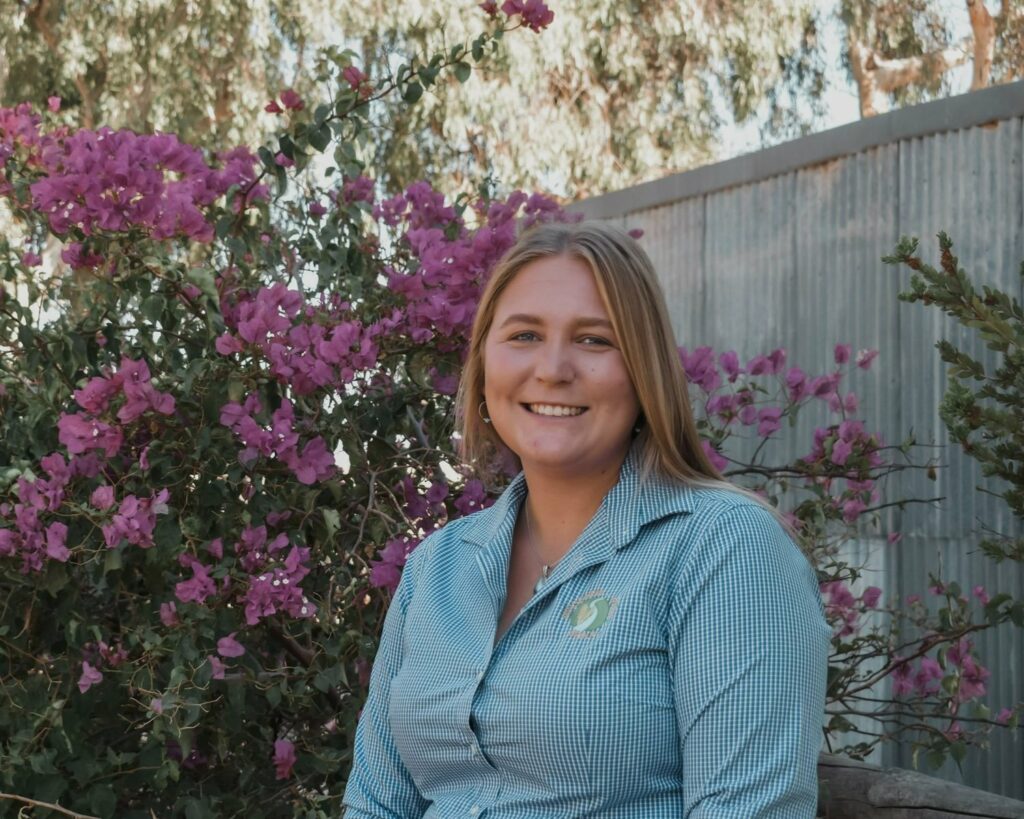
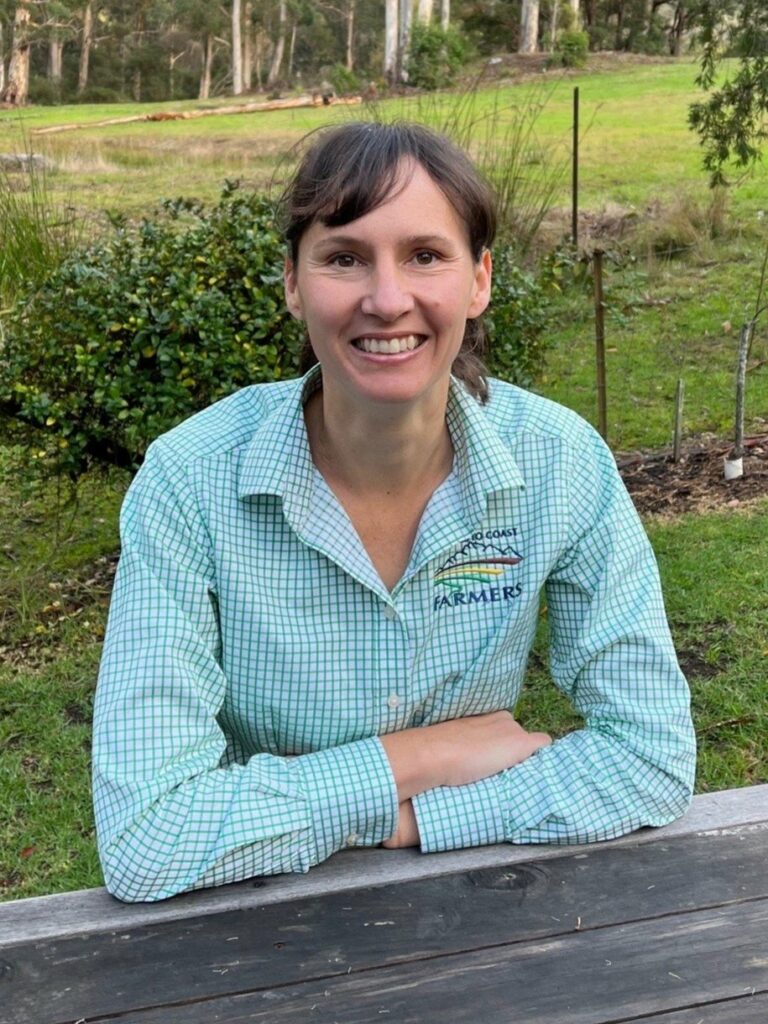

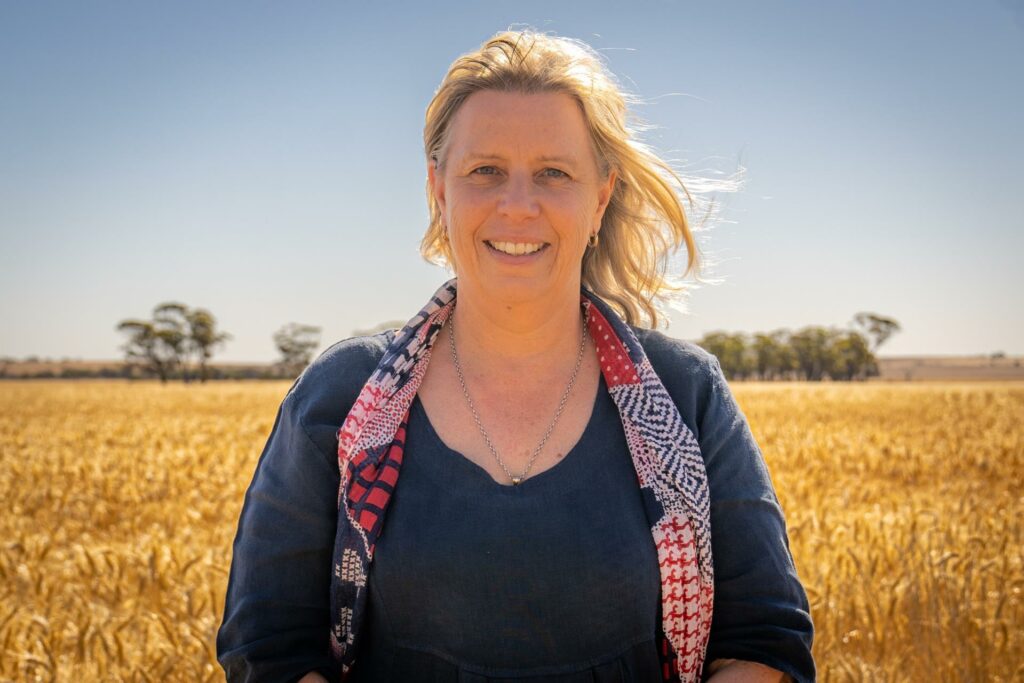
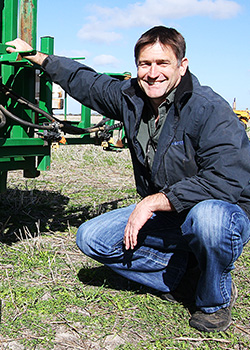


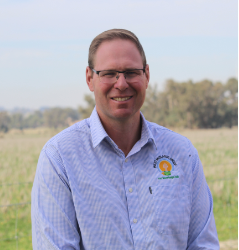
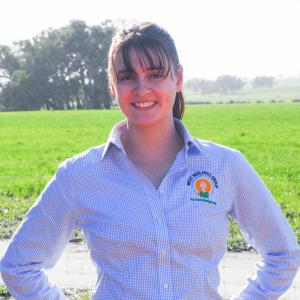


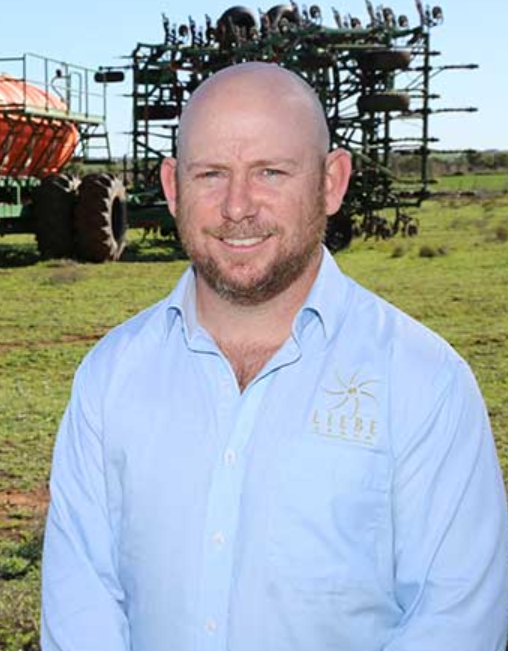







GGA Program Broker Mark Holland said WA growers were aware of the benefits of having grain legumes in their cropping rotation, but were frustrated by their inconsistent performance.
“As well as best practice production, this research will also explore the enhanced capabilities of modern grain legume varieties that have become available in recent years through advances in genetics, management and crop protection products,” he said.
“We will be measuring the impact of grain legumes to the rotation in terms of both crop yield and the benefit to following crops in nitrogen fixation and reduced inputs.
“The trials are being driven by the various grower groups and what their grower members want to see, including legume response to different crop protection treatments, soil amelioration, new varieties and nutrition responses.”Five different trials are planned for 2022. The Esperance zone will host lentil trials, disease control and response will be explored with faba beans in Albany, numerous species will be planted in trials at Wickepin, chickpeas will be the focus at Merredin and the response of lupins to phosphorus and potassium treatments will be studied at Mingenew.
Full Media Update story
The grower groups will be supported by Department of Primary Industries and Regional Development senior research scientist Mark Seymour and Farmanco consultant Ben Curtis, who will provide technical advice and guidance throughout the project.
“We are looking forward to demonstrating the important role grain legumes can play in western cropping rotations,” Mr Holland said.
“With high prices for nitrogen fertilisers, it’s more important than ever we have functional legumes included in the rotation.”
Project Shortcuts

Contact
Enquiries to Daniel Kidd at GGA
Collaborators
